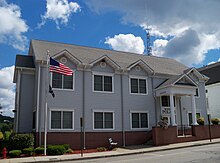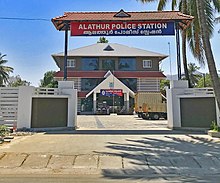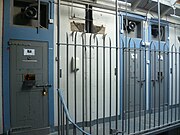
The Metropolitan Police Service (MPS), also officially known as the Metropolitan Police, which is still its common name, serves as the territorial police force responsible for law enforcement and crime prevention within the ceremonial county of Greater London. In addition, it is responsible for specialised tasks throughout the United Kingdom, such as UK counter-terrorism measures, and the protection of certain individuals, including the monarch, royal family, governmental officials, and other designated figures. Commonly referred to as the Met, it is also referred to as Scotland Yard or the Yard, after the location of its original headquarters in Great Scotland Yard, Whitehall in the 19th century. Its present headquarters are near there at New Scotland Yard on the Victoria Embankment.
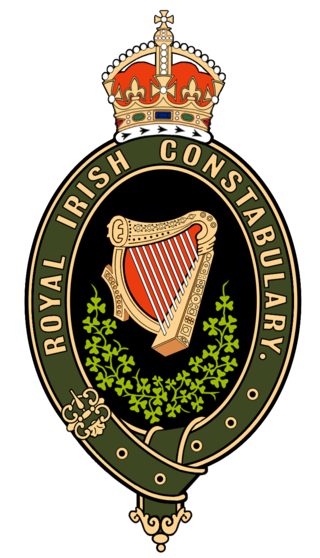
The Royal Irish Constabulary was the police force in Ireland from 1822 until 1922, when all of the country was part of the United Kingdom. A separate civic police force, the unarmed Dublin Metropolitan Police (DMP), patrolled the capital and parts of County Wicklow, while the cities of Derry and Belfast, originally with their own police forces, later had special divisions within the RIC. For most of its history, the ethnic and religious makeup of the RIC broadly matched that of the Irish population, although Anglo-Irish Protestants were overrepresented among its senior officers.

The Police Service of Northern Ireland (PSNI; Irish: Seirbhís Póilíneachta Thuaisceart Éireann; Ulster-Scots: Polis Service o Norlin Airlan), officially the Police Service of Northern Ireland (incorporating the Royal Ulster Constabulary), is the police service responsible for law enforcement and the prevention of crime within Northern Ireland.
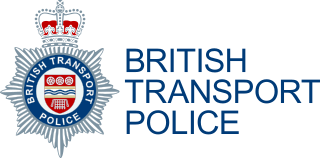
British Transport Police is a national special police force that polices the railway network of England, Wales and Scotland. The force polices more than 10,000 miles of track and more than 3,000 stations and depots.
The Criminal Investigation Department (CID) is the branch of a police force to which most plainclothes detectives belong in the United Kingdom and many Commonwealth nations. A force's CID is distinct from its Special Branch. The name derives from the CID of the Metropolitan Police, formed on 8 April 1878 by C. E. Howard Vincent as a re-formation of its Detective Branch. British colonial police forces all over the world adopted the terminology developed in the UK in the 19th and early 20th centuries, and later the police forces of those countries often retained it after independence. English-language media often use "CID" as a translation to refer to comparable organisations in other countries.

Law enforcement in India is imperative to keep justice and order in the nation. Indian law is enforced by a number of agencies. Unlike many federal nations, the constitution of India delegates the maintenance of law and order primarily to the states and territories.
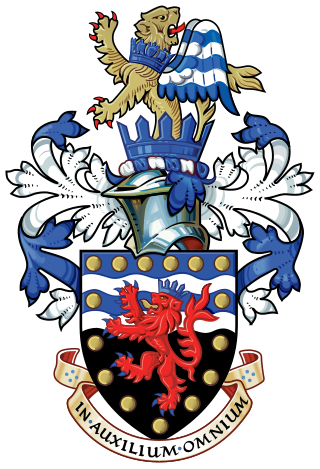
Devon and Cornwall Police is the territorial police force responsible for policing the ceremonial counties of Devon and Cornwall in South West England. The force serves approximately 1.8 million people over an area of 3,967 square miles (10,270 km2).
Inspector, also police inspector or inspector of police, is a police rank. The rank or position varies in seniority depending on the organization that uses it.

Lancashire Constabulary is the territorial police force responsible for policing the ceremonial county of Lancashire in North West England. The force's headquarters are at Hutton, near the city of Preston. As of September 2020, the force has 3,088 police officers, 190 special constables, and 280 police community support officers (PCSO), 300 police support volunteers (PSV), and 2,287 staff.

The Hampshire and Isle of Wight Constabulary is the territorial police force responsible for policing the counties of Hampshire and the Isle of Wight in South East England.

Sussex Police are the territorial police force responsible for policing in the whole of Sussex. Their jurisdiction covers the ceremonial counties of East Sussex and West Sussex. Their headquarters are in Malling House, Lewes, East Sussex.
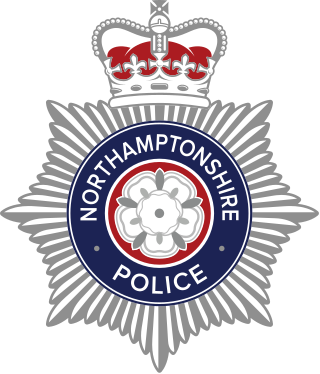
Northamptonshire Police is the territorial police force responsible for policing the county of Northamptonshire in the East Midlands of England, in the United Kingdom.
Superintendent (Supt) is a rank in the British police and in most English-speaking Commonwealth nations. In many Commonwealth countries, the full version is superintendent of police (SP). The rank is also used in most British Overseas Territories and in many former British colonies. In some countries, such as Italy, the rank of superintendent is a lower rank.

A collar number, also known as a shoulder number, force identification number (FIN) or occasionally as force number, identifies police officers, police community support officers (PCSO), special constables and some police staff in UK police forces – other law enforcement agencies, such as HM Prison Service, have also adopted identification numbers. Although now displayed on epaulettes, it is still commonly referred to as a collar number. Although most forces issue a collar number to all warranted officers regardless of role, only uniformed officers of the ranks constable and sergeant actually display the numbers.

Sri Lanka Police is the civilian national police force of the Democratic Socialist Republic of Sri Lanka. The police force is responsible for enforcing criminal and traffic law, enhancing public safety, maintaining order and keeping the peace throughout Sri Lanka. The police force consists of 43 Territorial Divisions, 67 Functional Divisions, 432 Police Stations with more than 84,000 people. The professional head of the police is the Inspector General of Police who reports to the Minister of Law and Order as well as the National Police Commission. The current Inspector General of Police (Acting) is Deshabandu Tennakoon.

The New York City Police Department (NYPD) is structured into numerous bureaus and units. As a whole, the NYPD is headed by the Police Commissioner, a civilian administrator appointed by the Mayor, with the senior sworn uniformed officer of the service titled "Chief of Department". The Police Commissioner appoints the First Deputy Commissioner as the department's second-in-command and the Chief of Department as the department's highest ranking uniformed officer. The commissioner also appoints a number of deputy and assistant commissioners who do not have operational command and are solely for support and administrative function. The department is divided into twenty bureaus, six of which are enforcement bureaus. Each enforcement bureau is further subdivided into sections, divisions, and units, and into patrol boroughs, precincts, and detective squads. Each bureau is commanded by a bureau chief. There are also a number of specialized units that are not part of any of the bureaus and report to the Chief of the Department.
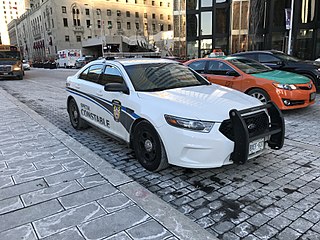
A special constable or special police constable can refer to an auxiliary or part-time law enforcement officer or a person who is granted certain (special) police powers.

The Assam Police is the law enforcement agency for the state of Assam in India. A regular police force was initiated in Assam by the British after the Treaty of Yandaboo to maintain the law and order. It functions under the Department of Home Affairs, Assam. The headquarters of Assam Police is situated at Ulubari in the state capital Guwahati.
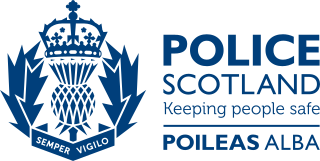
Police Scotland, officially the Police Service of Scotland, is the national police force of Scotland. It was formed in 2013, through the merging of eight regional police forces in Scotland, as well as the specialist services of the Scottish Police Services Authority, including the Scottish Crime and Drug Enforcement Agency. Although not formally absorbing it, the merger also resulted in the winding up of the Association of Chief Police Officers in Scotland.

The Counter Terrorism Department (Urdu: سررشتہِ تحقیقاتِ جرائم ، پاکستان; CTD) formerly known as the Crime Investigation Department (CID), are crime scene investigation, interrogation, anti-terrorism, and intelligence bureaus of the provincial police services of Pakistan.
